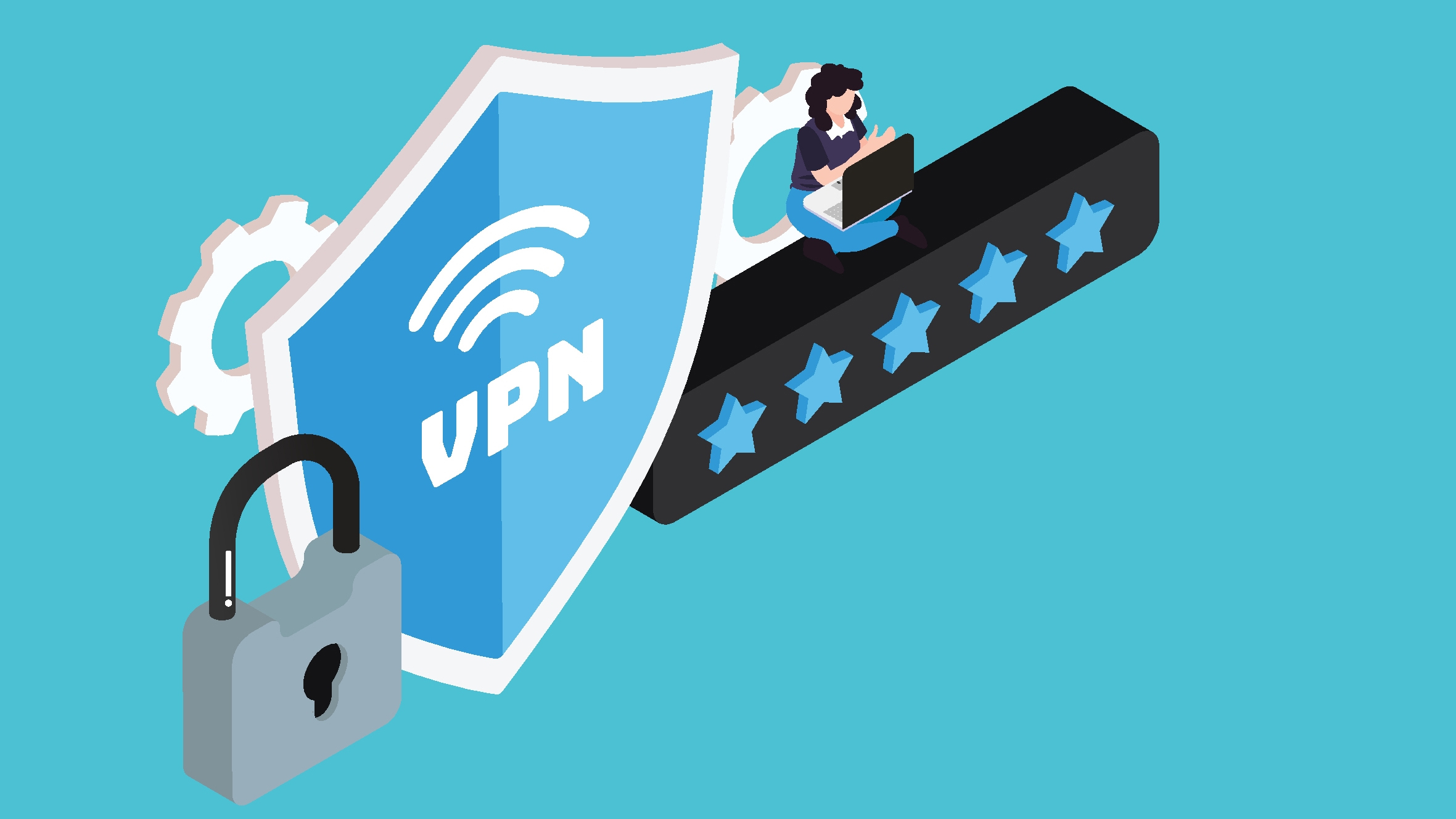What is P2P?
What is peer-to-peer sharing, exactly?

P2P, or “Peer to Peer”, is an alternate way of building networks that eschews the traditional “client and server” network architecture in favor of a decentralized network architecture.
In a P2P network, each peer connects directly to other peers to share and access resources within the network. Peers take on the role of both client and server, eliminating the need for a central server.
More often than not, people use P2P networks to share files. I'll walk you through how this works, why it's such a popular tactic, and the precautions you should take before diving into the world of P2P.
Why use P2P?
So, usually, when we start talking about P2P, people conjure up images of hooded hackers and digital pirates. I think the reputation P2P services have gathered over the years is undeserved.
Sure, the most infamous services (think BitTorrent, Bitcoin, and the Tor network) disproportionately pop up in the news because they can facilitate cybercrime, but the reality is that most P2P technology is used for relatively benign purposes. Also, it’s way cheaper than running servers.
P2P networks don't rely on a central server. Each peer can share and access resources directly with others. This eliminates the single point of failure and increases the network's resilience. If one peer goes offline, the network continues to function seamlessly.
Since P2P networks distribute the load among all peers, there's no need for expensive central servers or large-scale infrastructure. This reduces costs for service providers, which is nice, but that’s not all.
P2P networks scale naturally as more peers join. Each new peer brings additional resources, such as bandwidth and storage, which enhance the network's overall capacity and performance. This scalability is particularly useful for applications that need to handle large volumes of data or a high number of transactions.
I think the reputation P2P services have gathered over the years is undeserved
In addition to being tough to bring down, P2P networks are fast. By leveraging the combined bandwidth and processing power of all peers, P2P networks can offer faster download and upload speeds. This is especially beneficial for file-sharing applications where users need to transfer large files quickly and efficiently.
Most people think about file sharing when they hear about P2P, and for good reason. One of the earliest P2P file-sharing services, Napster, completely revolutionized the way people shared music in the early 2000s.
This ultimately paved the way for the BitTorrent protocol. It's still used widely today to send large files, break them down into small chunks, and distribute them across the users on the network. Then, those users share the chinks with others, streamlining and turbo-charging the download process.
However, there are many other popular uses for P2P technology than just file-sharing. Originally built on P2P technology, Skype enables subscribers to make voice and video calls directly with each other without routing data through a central server.
P2P also powers practically every cryptocurrency network we use today. For example, Bitcoin uses a P2P network to facilitate secure and decentralized transactions. The public ledger powered by P2P technology ensures that Bitcoin remains transparent, trustworthy, and immutable.
Finally, if you ever owned a PS3, you may remember the Folding@home project. This program used P2P networks to harness the processing power of thousands of volunteer computers for scientific endeavors. By contributing fractions of their processing power, Folding@home users powered a program that models protein folding and misfolding, which is related to diseases such as Alzheimer's.
P2P drawbacks
The decentralized nature of peer-to-peer networks comes with tons of benefits – and a few inherent drawbacks. These include:
- Malware distribution. Because files are shared directly between peers, there’s often no mechanism in place to identify whether a file is legitimate or bundled with malware. Malicious actors can easily exploit P2P networks to distribute malware with the help of unwitting users.
- Exposed IP address. Most P2P platforms expose your IP address to function. So, anyone you're connected to can see a whole host of details – like your ISP and general location. A skilled hacker may use these details to launch other cyberattacks, like phishing scams and identity fraud.
- Bandwidth usage. P2P networks are hungry, and eat up a lot of bandwidth as users share data with multiple peers, simultaneously. This can lead to sluggish internet speeds and increased data usage, which could be an issue for anyone with a data cap or limited bandwidth.
If you're looking for an alternative way to share files, it's well worth checking out today's most secure VPNs. NordVPN's Meshnet tool, in particular, comes in handy, as it allows you to create your own file-sharing network between trusted users. Oh, and then there's the added benefit of concealing your original IP address.
Staying safe with P2P
Using peer-to-peer networks can be risky, but with a few extra steps, you can get the most out of them without ever putting your device in harm's way.
First off, you should make sure you choose a reputable P2P client for file-sharing. This is especially true if you’re choosing between BitTorrent clients. I recommend Transmission, which is regularly updated to patch security vulnerabilities and improve functionality. It’s also open source, so you know exactly what the software is doing on your system.

Wondering what how kill switches do their thing – and why they're some of our favorite VPN tools? Check out our guide to VPN kill switches.
By using a P2P client that’s actively maintained and trusted by the community, you’re reducing the chances of using a piece of software that could introduce malware onto your system.
You should also be aware that using a P2P client exposes your IP address to other users on the internet. There are a few things you can do about this, but the most important one is to install a firewall. It acts as a barrier between your computer and the internet, monitoring incoming and outgoing traffic to block hacking attempts on your device.
That solves the issue of being attacked, but your home IP address is still visible when you use a P2P client which can reveal your location to others. The best VPNs will hide your IP address when you’re using a P2P client, making it impossible for other users on the network to know where you’re really connecting from.
You should make sure you’re using one with a reliable kill switch, as this is essential for ensuring your home IP isn’t exposed if your connection to the VPN drops out. Best of all, using a VPN encrypts your traffic, making it impossible for your ISP to spy on your Bitcoin transactions or file-sharing.
FAQs
Why is P2P illegal?
The short answer is that P2P technology itself isn't illegal. Peer-to-peer networks are a legitimate and powerful method for sharing resources and data directly between users without relying on a central server.
However, the legality issues arise from how P2P networks are used, specifically when it comes to sharing copyrighted material without authorization.
How risky is using P2P?
Using P2P networks can be risky due to potential malware, unauthorized access, data integrity issues, privacy concerns, and legal problems. However, by taking specific security precautions, you can significantly reduce these risks.
Use a reputable torrent client, install a firewall, and utilize a VPN with a reliable kill switch to protect your data and privacy.
Can you get scammed using P2P?
Yes, you can get scammed using P2P networks. The decentralized nature of peer-to-peer technology means that there is no central authority overseeing transactions, which can make it easier for fraudulent activities to occur.
Scammers can exploit this by distributing malware-infected files, sharing corrupted data, or engaging in financial fraud. To protect yourself, always take steps to verify the identity of anyone you interact with on a P2P network.

Sam Dawson is a cybersecurity expert who has over four years of experience reviewing security-related software products. He focuses his writing on VPNs and security, previously writing for ProPrivacy before freelancing for Future PLC's brands, including TechRadar. Between running a penetration testing company and finishing a PhD focusing on speculative execution attacks at the University of Kent, he still somehow finds the time to keep an eye on how technology is impacting current affairs.